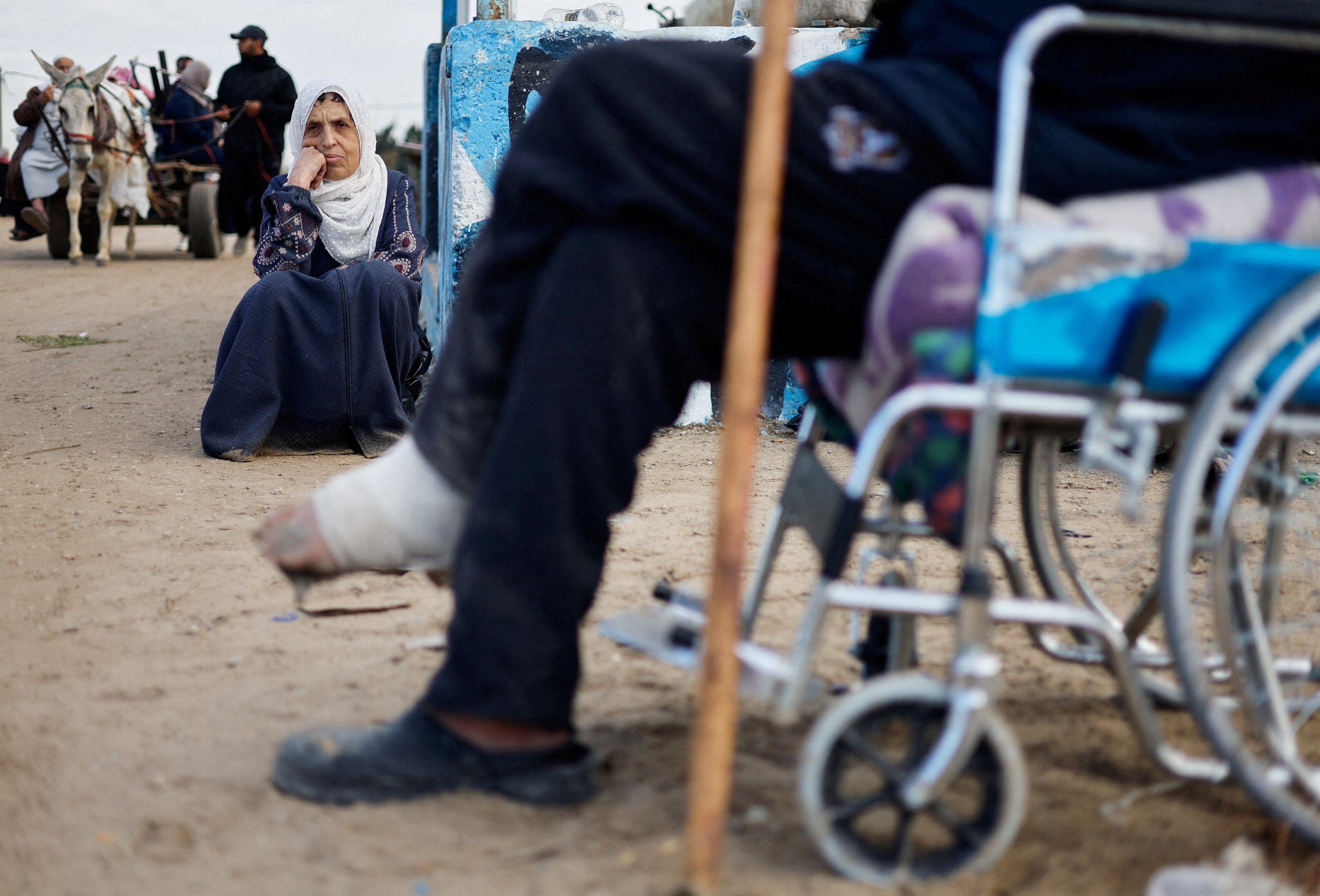© Turkuvaz Haberleşme ve Yayıncılık 2026
The prospects of a cease-fire in Gaza dimmed Sunday as Israel continued to dismiss international calls for a truce and U.S. threats of vetoing a new Security Council resolution.
Key mediator Qatar, in the meanwhile, has also acknowledged that separate truce talks have hit an impasse.
Efforts to pause the over four-month war languish as Israeli Prime Minister Benjamin Netanyahu vowed to reject international appeals to spare Gaza's southernmost city of Rafah, where around 1.4 million people have sought refuge.
Israel's relentless campaign against Hamas has edged closer to the city, with attacks killing at least 10 people there and in central Gaza's Deir al-Balah overnight to Sunday, according to official Palestinian news agency WAFA.
At the morgue of a Rafah hospital, mourners bent down to give a final kiss to a loved one wrapped in a white body bag.
"That's my cousin – he was martyred in al-Mawasi, in the 'safe area,'" said Ahmad Muhammad Aburizq. "And my mother was martyred the day before.
"There's no safe place. Even the hospital is not safe."
A total of 127 people died over the previous 24 hours, the Gazan Health Ministry said Sunday.
The Gaza war began with the Oct. 7 Hamas incursion of southern Israel that killed around 1,160 people, according to an AFP tally of Israeli official figures.
Resistance groups also took about 250 people hostage, 130 of whom are still in Gaza, including 30 who are presumed dead, according to Israeli figures.
Vowing to destroy Hamas, Israel's retaliatory bombardment and ground offensive in Gaza have killed at least 28,985 people, mostly women and children, according to the Health Ministry.
Egypt, which controls the Rafah border crossing from Gaza, has repeatedly warned against any "forced displacement" of Palestinians into the Sinai desert.
President Abdel-Fattah el-Sissi on Saturday reiterated his opposition. In a phone call with French President Emmanuel Macron, both leaders agreed instead on the "necessity of the swift advancement of a cease-fire."
Even if a temporary truce deal is struck, Netanyahu said the ground invasion of Rafah will go ahead.
Countries urging Israel otherwise are effectively saying "lose the war," argued the prime minister, whose coalition includes religious and ultra-nationalist parties.
U.S. President Joe Biden had "multiple calls" with Netanyahu as well as Egyptian and Qatari leaders this week "to push this deal forward," she said.
Speaking at the Munich Security Conference, Qatari Prime Minister Mohammed bin Abdulrahman Al Thani called those talks "not very promising."
He said the efforts had been complicated by the insistence of "a lot of countries" that any new truce involve further releases of hostages.
His assessment came as Hamas threatened to suspend its involvement in the talks unless relief supplies reach Gaza's north, where aid agencies have warned of looming famine.
"Negotiations cannot be held while hunger is ravaging the Palestinian people," a senior source in the Palestinian resistance group told AFP, asking not to be identified because he is not authorized to speak on the issue.
Earlier, Hamas chief Ismail Haniyeh reiterated the group's demands, which Netanyahu called "ludicrous."
They include a complete pause in fighting, the release of Hamas prisoners and the withdrawal of Israeli troops from Gaza.
Israel's military on Sunday said troops in the southern city of Khan Younis are still operating "in the Nasser Hospital" and adjacent to it where they "located additional weapons."
The ongoing raid followed a weeklong siege which has left the hospital "not functional anymore" even though 200 patients remain there, World Health Organization chief Tedros Adhanom Ghebreyesus wrote on social media platform X.
He called for access to the facility after a WHO team "was not permitted to enter" for an assessment.

Gaza Health Ministry spokesperson Ashraf al-Qudra also said Nasser hospital was out of service after troops had turned it "into a military barracks."
He said one more person had died due to lack of oxygen because power has been out for three days, bringing the total of such deaths to seven.
Qudra accused Israeli forces of arresting 70 "health personnel" and dozens of patients.
Meanwhile, the head of the U.N. humanitarian agency OCHA in the Palestinian territories, Andrea De Domenico, said he had "no idea" how an estimated 300,000 people still in Gaza's north had survived.
The United Nations has cited "significant restrictions" on aid delivery to north Gaza while in Rafah there had been "reports of people stopping aid trucks to take food."
